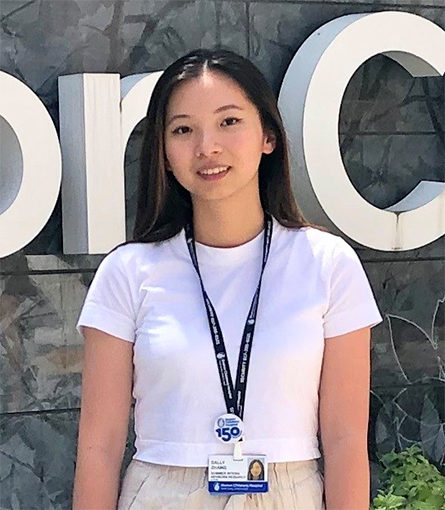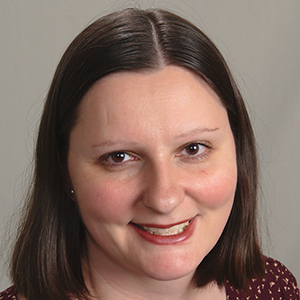Science and medicine: Connecting the known and the unknown
Tian “Sally” Zhang got an early introduction to scientific publishing. When she was a high school junior working as a research assistant at the University of British Columbia, she studied how efficiently a peptide killed biofilm bacteria. The research was published in 2016 as a first-author paper in PLoS One. Through this work, Zhang said she “began to be interested in biology,” leading to her subsequent college major and interest in medicine as a career.

Now a senior at Emory University majoring in biology and minoring in physics, Zhang is the president of the school’s American Society for Biochemistry and Molecular Biology Student Chapter, which she worked to start in fall 2018. The following spring, the chapter surveyed students on trends related to career development, started a mentorship program, and engaged members in outreach and science advocacy initiatives.
The chapter’s advocacy activities focused on a letter-writing campaign urging policymakers to fund research and science, technology, engineering and math programs. A volunteer outreach program sent undergrads to local elementary schools to demonstrate chemical reactions by combining an acid and a base to propel a plastic bottle modified to look like a boat. The mentoring program matches grad students and students in the school of medicine with undergrads to discuss career development and various educational paths.
After the COVID-19 outbreak, the Student Chapter slowed its activities, but members engaged in a few virtual events last spring. They plan to continue hosting new activities online in this school year, Zhang said. “We have been working to implement novel policies … to serve the student population in a remote format.”
With all her Student Chapter activities, Zhang has not neglected her research. Working in the Center for Neurodegenerative Diseases at Emory, she was an author on a paper about protein interactions in Alzheimer’s disease, using proteomics to study human brain tissue. During an internship at Harvard Medical School and Boston Children’s Hospital, she worked on a clinical report about a rare disease in infants.
Over time, these experiences led Zhang to think about becoming a physician. “Medicine makes a connection between what is known and what is unknown,” she said, adding that she enjoys the “interactive nature of patient care.”
While shadowing a clinician as part of her Alzheimer’s research , Zhang said she saw how much a physician can do for patients by using personalized treatment strategies and being empathetic. Examining clinical trials data during her Harvard internship, she saw inside the patient–physician dynamic and really enjoyed it.
Zhang’s goal is to become an academic physician. She plans to attend medical school, become a doctor and potentially run her own laboratory someday. Ultimately, she would like to pursue a career where she can both see patients and do bench research.
Enjoy reading ASBMB Today?
Become a member to receive the print edition four times a year and the digital edition monthly.
Learn moreGet the latest from ASBMB Today
Enter your email address, and we’ll send you a weekly email with recent articles, interviews and more.
Latest in People
People highlights or most popular articles

From humble beginnings to unlocking lysosomal secrets
Monther Abu–Remaileh will receive the ASBMB’s 2026 Walter A. Shaw Young Investigator Award in Lipid Research at the ASBMB Annual Meeting, March 7-10 in Washington, D.C.

Chemistry meets biology to thwart parasites
Margaret Phillips will receive the Alice and C. C. Wang Award in Molecular Parasitology at the ASBMB Annual Meeting, March 7-10 in Washington, D.C.

ASBMB announces 2026 JBC/Tabor awardees
The seven awardees are first authors of outstanding papers published in 2025 in the Journal of Biological Chemistry.

Decoding how bacteria flip host’s molecular switches
Kim Orth will receive the Earl and Thressa Stadtman Distinguished Scientists Award at the ASBMB Annual Meeting, March 7–10, just outside of Washington, D.C.

Thiam elected to EMBO
He was recognized during the EMBO Members’ Meeting in Heidelberg, Germany, in October.

The timekeepers of proteostasis
Learn about the cover of the winter 2026 ASBMB Today issue, illustrated by ASBMB member Megan Mitchem.

